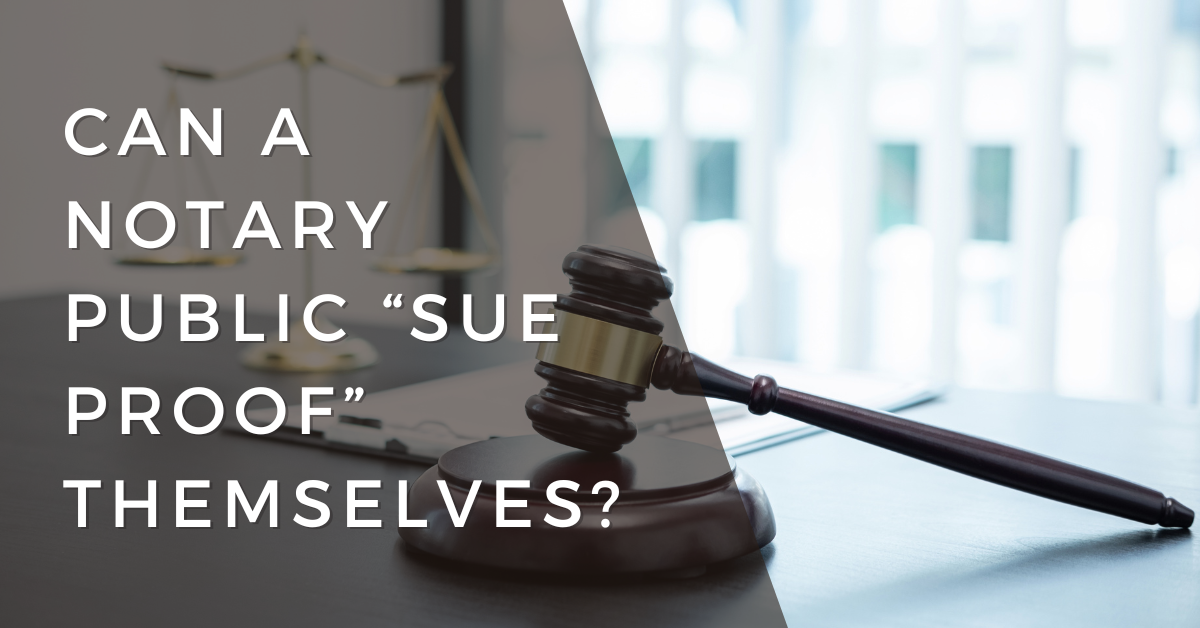Florida Notary Public Updates
Can a Notary Public “Sue Proof” Themselves?

Can anyone, including a notary public, “sue-proof” themselves?
The answer, of course, is no. The U.S. legal system has a heavy annual caseload of personal injury lawsuits due to its accessibility to all regardless of financial means. Other factors, such as the common desire to assign blame for perceived harm or injury and to be monetarily compensated, add to the system’s burdens.
Even when a wrongly-sued notary eventually clears their good name, they may be left with hefty debt from the high cost of legally defending themselves.
That said, there are helpful and easy steps a notary can take to protect themselves as much as possible from the pains of a personal injury lawsuit.
The obvious first step: know and follow your state’s notary laws, rules and regulatory policies.
Every U.S. notary is subject to the requirements of their commissioning or appointing state’s laws (statutes), administrative rules, and regulatory policies.
- State laws are enacted by the individuals elected to serve as lawmakers in a state’s legislature, general assembly, legislative assembly, etc.—the name varies depending on the state.
- For notaries public, administrative rules are usually created by the state official or agency responsible for day-to-day oversight, regulation and discipline of notaries. In many states, that individual is the Secretary of State. In some states, as applicable, that individual is the clerk of court in the county where the notary resides and filed for a notary commission.
In every state, applicable laws and administrative rules are readily available online. Notaries should regularly check state laws and administrative rules for changes.
But remember, even notaries who do nothing wrong can find themselves being sued. The strongly-recommended next step for notaries is to protect themselves by obtaining a notary public errors and omissions policy from Troy Fain Insurance.
Notaries can easily purchase errors and omissions through Troy Fain Insurance's website. The process is quick, affordable, and gives you peace of mind knowing you have an extra layer of protection.
To be clear, an errors and omissions policy does not protect a notary whose harmful error or omission during a notarial act is found to be intentional (an act of misconduct). An errors and omissions policy does protect the notary against unintended mistakes and oversights. Just as important is the errors and omissions policy’s protection against harm caused by someone falsely posing as a particular notary—without the real notary’s knowledge.
Don’t wait until the day that you wish you’d obtained an errors and omissions policy—act now and secure your errors and omissions policy in just a few clicks.
